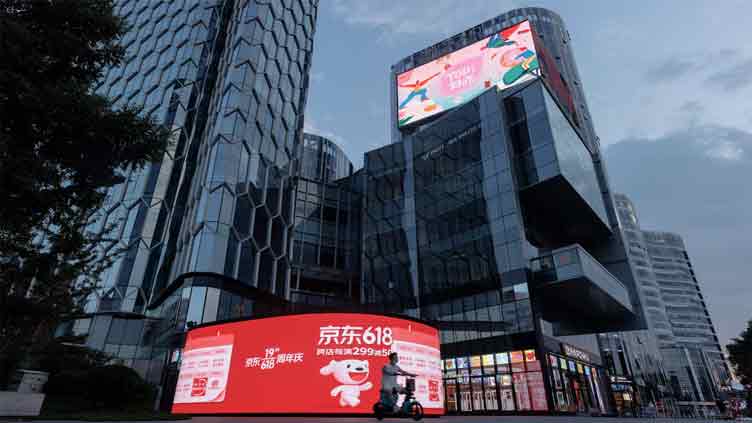China's JD.com walks away from offer for Britain's Currys

Business
Analysts at Peel Hunt had said it would take an offer of over 80 pence per share
LONDON (Reuters) – China-based online retailer JD.com said on Friday it would not make an offer for British electricals group Currys, days after US investor Elliott Advisors walked away.
Shares in Currys, which slumped to a session low after the update, were down 5 per cent at 56.3 pence by 1425 GMT.
JD.com, which was keen on Currys' store and warehouse network to help it expand in the UK and Europe and counter weak demand in China, had said on Feb 19 it was evaluating a possible offer.
However, it said on Friday that "following careful consideration", it does not intend to make a bid. Currys had no immediate comment.
Elliott Advisors said on Monday it wouldn't be making a firm offer for Currys either, having had proposals of 62 pence a share and then 67 pence a share rejected.
The stock closed Thursday at 58.9 pence, giving Currys a market capitalisation of 670 million pounds.
Analysts at Peel Hunt had said it would take an offer of over 80 pence per share for Currys' board to engage.
While Currys, which sells fridges, washing machines, computers and other consumer electricals in Britain, Ireland, Sweden, Norway, Denmark and Finland, has struggled to grow over the last two years due to the squeeze on consumer incomes, the company has argued its prospects are bright.
In January it forecast annual profit ahead of market expectations as it benefited from improving consumer confidence and a better performance in its Nordics business.
Earlier this month, it said a deal to sell its Greek unit would complete in April, giving it net cash proceeds of 156 million pounds which it would use to reduce debt.
The number of failed takeovers of UK-listed companies has more than doubled in recent years as boards have rebuffed a slew of bids they believe are taking advantage of cheapened stock prices.


